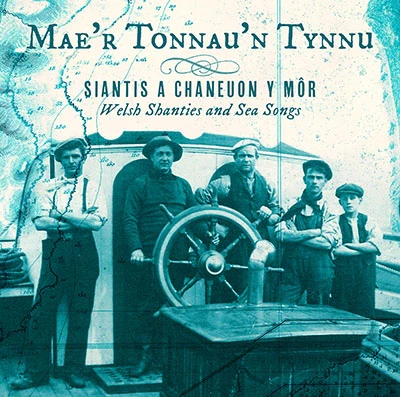Helmi
Album
Release Date: 30/01/25
Shimli is the follow up to 2020’s Dilyn Afon by Welsh folk singer, researcher, grain grower and cultural historian Owen Shiers, aka ‘Cynefin’. Continuing in the vein of rooting his music firmly in the customs and cultural vernacular of Ceredigion, the album takes its title from the now obsolete West Walian practice of all night musical and poetic vigils which used to take place in mills and workshops. Drawing inspiration from folk song, the beirdd gwlad (folk poet) tradition – as well as living oral history and story, the album explores the intersection between music, poetry, food and the natural world. A personal dispatch from the struggle to maintain a language, culture and way of life, the album is a musical petition – a stake in the ground for the diverse and the disappearing in our age of homogenisation and mass amnesia.
“A quietly political antidote to the modern age” – ☆ ☆ ☆ ☆ Folk Album of the Month, The Guardian
“Beautiful” – ☆ ☆ ☆ ☆ ☆ Top Pick, Songlines
“Love it!” – Cerys Matthews, BBC Radio 6
Dilyn Afon
Album
Astar Artes Recordings
Cynefin’s debut album.The result of three years of research and work, Cynefin’s debut album ‘Dilyn Afon’, follows the cultural ‘cynefin’ of Owen’s home county, starting in the Clettwr Valley where he grew up.
Uncovering lost voices, melodies and stories as it goes, the album gives a modern voice to Ceredigion’s rich yet fragile cultural heritage and presents forgotten and neglected material in a fresh new light. Produced by John Hollis (Catrin Finch/Seckou Keita, Toto La Momposina)
“A stunning new talent” – The Guardian
“Remarkable..compelling listening” – MOJO
“Evocative and beautiful” – The Folk Show, BBC Radio 2
“✰✰✰✰ Beguiling…a distinct debut ” – Songlines
“Epic work” – Living Tradition
Helmi
Single
Released: 30/10/24
Helmi is the lead single from the new forthcoming album from Cynefin, Shimli. he song presents the words of an old obscure cân (a poem or song) by farmer Evan Jones from Prengwyn. In the poem Evans describes the family farmhouse surrounded by a stoic army of helmi (corn stacks) in golden regalia, protecting the inhabitants from hunger and the scourge of winter. As romantic as the depiction may seem, the piece is a poignant and lyrical account of the not-so-distant past. Not only have helmi disappeared from the Welsh landscape – significantly, so too have the native crops that once fed a nation. For a country now almost completely reliant on imported food, there is perhaps a timely message in his words.
Produced by: Laurence Greed
Cornicyll
Single
Released: 14/01/25
Since 1930, lapwing numbers in Britain have plummeted by 90%. Changes in agricultural practices have without doubt been a major factor in this decline as mechanisation, intensification and changes to arable farming practices have all deprived this spectacular bird of its natural habitat. Their incredible aerial acrobatics and spring mating rituals were once a common phenomenon in the skies of rural Wales, but they are now mostly confined to a small number of protected areas.
The poet and farmer Dic Jones, who was raised next to the RSPB reserve at Ynys Hir, commented on the disappearance of the lapwings in his poem ‘Cornicyllod’ (meaning ‘lapwings’ — however they are also known as ‘Hen Het’ in Ceredigion, as the name bears a similarity to their calls). This song is inspired by Dic’s poem and my own visits to the lapwing reserve at Ynys Hir and is a commentary on the bird’s disappearance from both the landscape and from cultural memory. Nowhere is this more poignant than the recent of example of the couple who bought ‘Banc Cornicyll’ farm in Carmarthenshire and then changed its name to ‘Hakuna matata’ — it means ‘no worries’, but try telling that to the lapwings who have been wiped from the landscape there, in this case both in a physical and linguistic sense.
Produced by: Laurence Greed
Stand Up Now
Compilation Album
The Landworkers’ Alliance
This amazing collation of songs draws on the collective talent of the LWA membership and musicians who support their cause. Stand Up Now collates traditional and original music gathered from the farms, woods and cities of our contested nation, and stands in a proud tradition of peoples’ music and peoples’ history. Recorded the cold wet spring of 2021, these fifteen songs raise the eternal themes of our present and of our past; love, liberty and the struggles of labour.
Stand Up Now includes recordings from Robin Grey, The Norfolk Broads, Ewan McClennan and many more. It includes contemporary stories such as Owen Shiers’ ballad of the community farm Trecadwgan, as well as the timeless classics, such as that which gives the album its name. Our countryside is bedevilled with struggle, but a better world is coming, and it’s singing as it comes. They may own the land, but the songs belong to no one…








